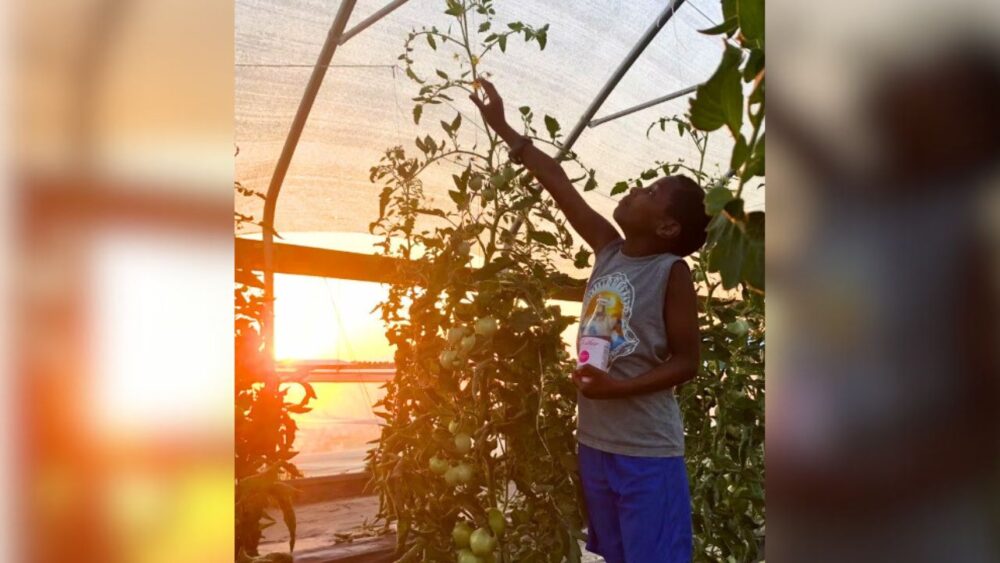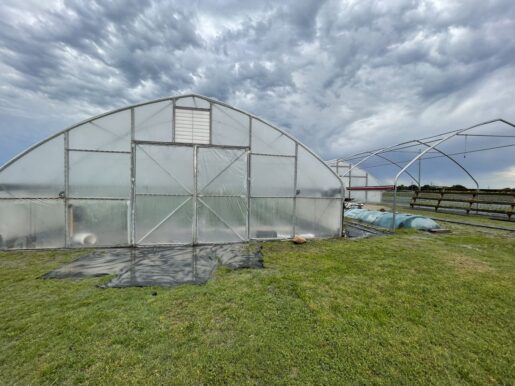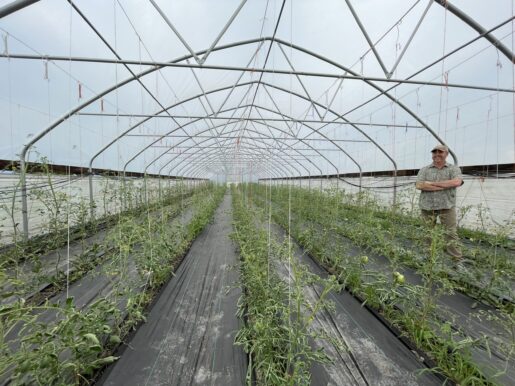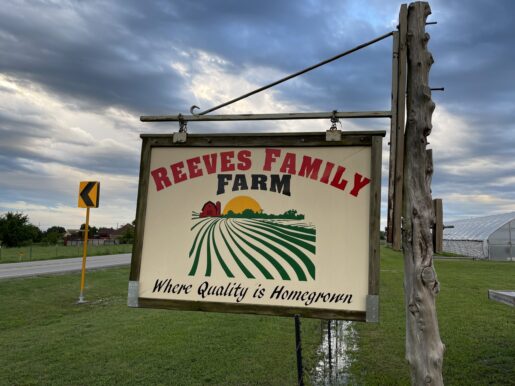“High tunnels are basically a greenhouse; everything is soil. It’s all about the soil,” said Aaron Reeves, a farmer who has grown his operation from scratch in Princeton, located in Collin County.
Reeves, who started Reeves Family Farm in 2006 and built a home on the land in 2016, is among a growing number of small-scale and homestead producers embracing high tunnels — hoop-like structures covered in plastic sheeting — to extend growing seasons, protect crops, and limit reliance on unpredictable weather.
“Crops can grow much better in the high tunnel in the wintertime,” Reeves said.
The structure at Reeves’ farm stretches 132 feet long by 30 feet wide and features roll-up side curtains for temperature control. In a season marked by relentless rain, creating a stable growing environment has become indispensable.
“No one will have tomato crops around here this year because it has been so wet,” Reeves said. “High tunnels allow you to control environments.”
High tunnels, sometimes called hoop houses, are often confused with greenhouses but operate differently. While greenhouses use artificial heating and sophisticated systems to manage growing conditions, high tunnels rely on solar heat and natural ventilation. Crops are grown directly in the ground under a layer of protective plastic sheeting, making the soil the central focus of the system.
Reeves emphasized that growing in soil has its challenges. This year, he faced a setback when tomato plants in his tunnel—some 800 to 900 in all—began showing signs of herbicide contamination.
“Don’t buy manure unless you know exactly what is in it,” he warned. “I’m going to terminate these plants… replace them with a cover crop to soak up that chemical.”
The culprit may have been 2,4-D or another broadleaf herbicide. Such chemicals can linger in manure if livestock graze on treated forage, damaging sensitive crops like tomatoes and causing leaf curling.
The concern wasn’t his alone. One older farmer at the tour, who only identified himself as Mark, offered a simple way to test manure before spreading it: “a ‘test pot’ of peanuts,” he said. By observing whether the leaves grow normally, farmers can screen for chemical residues.
Despite the challenges, Reeves has found that high tunnels are a worthwhile investment. He uses drip tape for efficient watering and allows tomato plants to grow “indeterminate,” meaning they continue growing and producing fruit throughout the season. While the plastic covering of the tunnel may need to be replaced every five years, Reeves said the job is manageable.
“Buying a quality metal frame is important,” he said, adding that he learned to replace the plastic through a YouTube video.
According to Yesenia Diaz, a soil conservationist with the USDA’s Natural Resources Conservation Service (NRCS), cost can be a hurdle — but federal assistance is available.
Diaz said the average cost to install a high tunnel like Reeves’ is about $15,000. However, she pointed out that NRCS offers cost-sharing programs that can offset much of that amount.
“The cost share works out to about five dollars per square foot on average,” Diaz said. The program requires that materials be purchased as a kit and that farmers follow specific construction guidelines, but the financial support can make the difference for small growers.
The discussion about high tunnels took place on May 2 as part of a “Conservation in Action” farm tour arranged by the Farm and Ranch Freedom Alliance (FARFA), a nonprofit that advocates for small farmers and food independence.
FARFA describes itself as an organization that “provides a voice for independent farmers, ranchers, and consumers on a wide range of issues,” pushing back against the dominance of industrial-scale agriculture. “The future of our food must be wrestled from the hands of the industrial-scale systems that have controlled the market for more than 50 years,” the group’s website states.
Reeves Family Farm was one of the hosts for the tour. According to a FARFA flyer, the farm is a “family of six with four dogs, a few barn cats, Buddy the Longhorn, Snickers and Maggie (our mini horses), and a bunch of happy, free-range, egg-producing hens.” They grow vegetables and melons on about 50 acres and follow sustainable, organic practices.
“There’s nothing like eating fresh, safe, real food,” the family’s statement reads. “We love what we do! Thank you for supporting local farms!!!”





